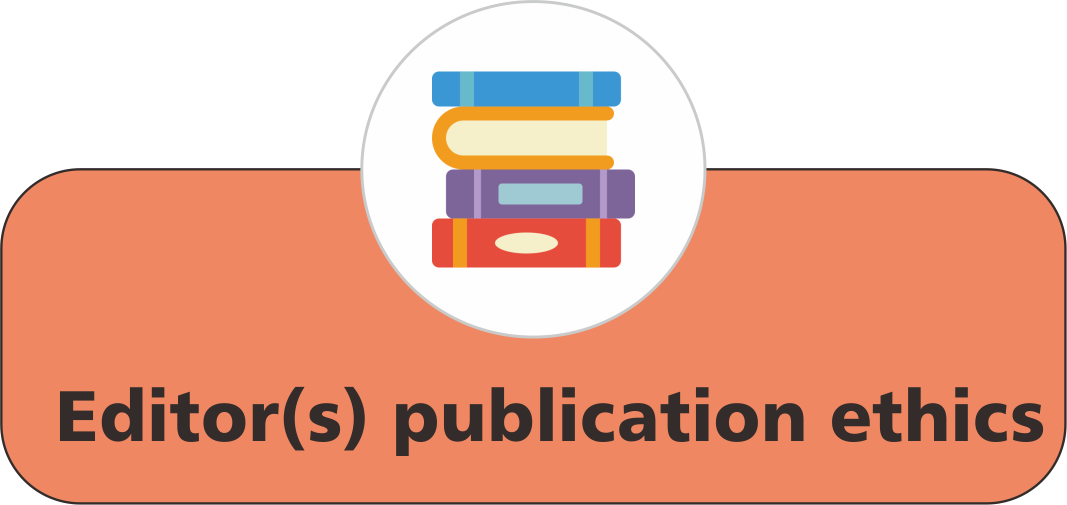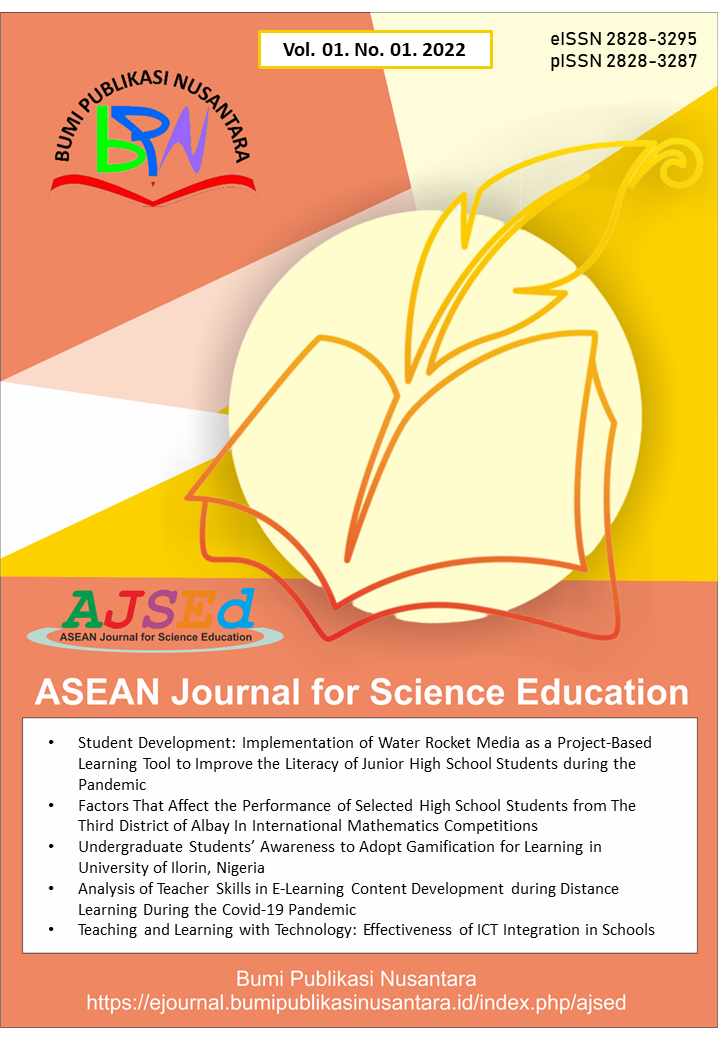Retaining Female Students in School: Intervention for Improving Menstrual Hygiene
 ), K. E. Obafemi(2), A. O. Olaniyan(3), H. T. Sulyman(4), O. Ajayi(5), A. Y. Abubakar(6),
), K. E. Obafemi(2), A. O. Olaniyan(3), H. T. Sulyman(4), O. Ajayi(5), A. Y. Abubakar(6),
(1) Kwara State University
(2) Kwara State University
(3) Kwara State University
(4) Kwara State University
(5) Kwara State University
(6) Kwara State University
 Corresponding Author
Corresponding Author
Abstract
Keywords
References
Aluko O.O., Oluya O.M., Olaleye O.A., Olajuyin A.A., Olabintan T. F., and Oloruntoba-oju O.I. (2014). Knowledge and menstrual hygiene practices among adolescents in senior secondary schools in Ile-Ife, South Western Nigeria. Journal of Water, Sanitation and Hygiene for Development, 4(2) 248-252.
Aniebue, U., Aniebue, P., and Nwankwo, T. (2009). The impact of pre-menarchial training on menstrual practices and hygiene of Nigerian school girls. The Pan African Medical Journal, 2(9), 48-59.
Benard, L. C., John B., and Ng’eno, J. K. (2016). Causes of absenteeism and dropout among girls in secondary schools in Bureti Sub County, Kenya. Research on Humanities and Social Sciences, 6(12), 8-22.
Boosey R., Prestwich G., and Deave T. (2014). Menstrual hygiene management amongst schoolgirls In Rukungiri district of Uganda and the Impact on their education a cross- sectional study. The Pan African Medical Journal, 19, 253-264.
Hennegan, J., Dolan, C., Wu, M., Scott, L., and Montgomery, P. (2019). Measuring the prevalence and impact of poor menstrual hygiene management: A quantitative survey of schoolgirls in rural Uganda. BMJ Global Health, 4(4), 15-38.
Mason, L., Nyothach, E., Alexander, K., Odhiambo, F. O., Eleveld, A., Vulule, J., and Laserson, K. F. (2013). We keep it secret so no one should know–a qualitative study to explore young schoolgirls attitudes and experiences with menstruation in rural Western Kenya. PLoS One, 8(11), 79-132.
McMahon, S. A., Winch, P. J., Caruso, B. A., Obure, A. F., Ogutu, E. A., Ochari, I. A., and Rheingans, R. D. (2011). ‘The girl with her period is the one to hang her head’ Reflections on menstrual management among schoolgirls in rural Kenya. BMC International Health and Human Rights, 11(1), 1-7.
Obafemi, K. E., Babatunde, Y., and Orji, J. C. (2015). Influence of street hawking on pupils’ school attendance in Ilorn west local government area of Kwara State. KWASU International Journal of Education (KIJE), 3(1), 178-191.
Yadav, R, N., Joshi, S., Poudel, R., and Pandeya P. (2018). Knowledge, attitude, and practice on menstrual hygiene management among school adolescents. Journal of Nepal Health Research Council, 15(37), 212-216.
Article Metrics
Abstract View : 1103 times
: 1103 times Download : 506 times
Download : 506 times
Refbacks
- There are currently no refbacks.
Copyright (c) 2023 Bumi Publikasi Nusantara

This work is licensed under a Creative Commons Attribution-ShareAlike 4.0 International License.







